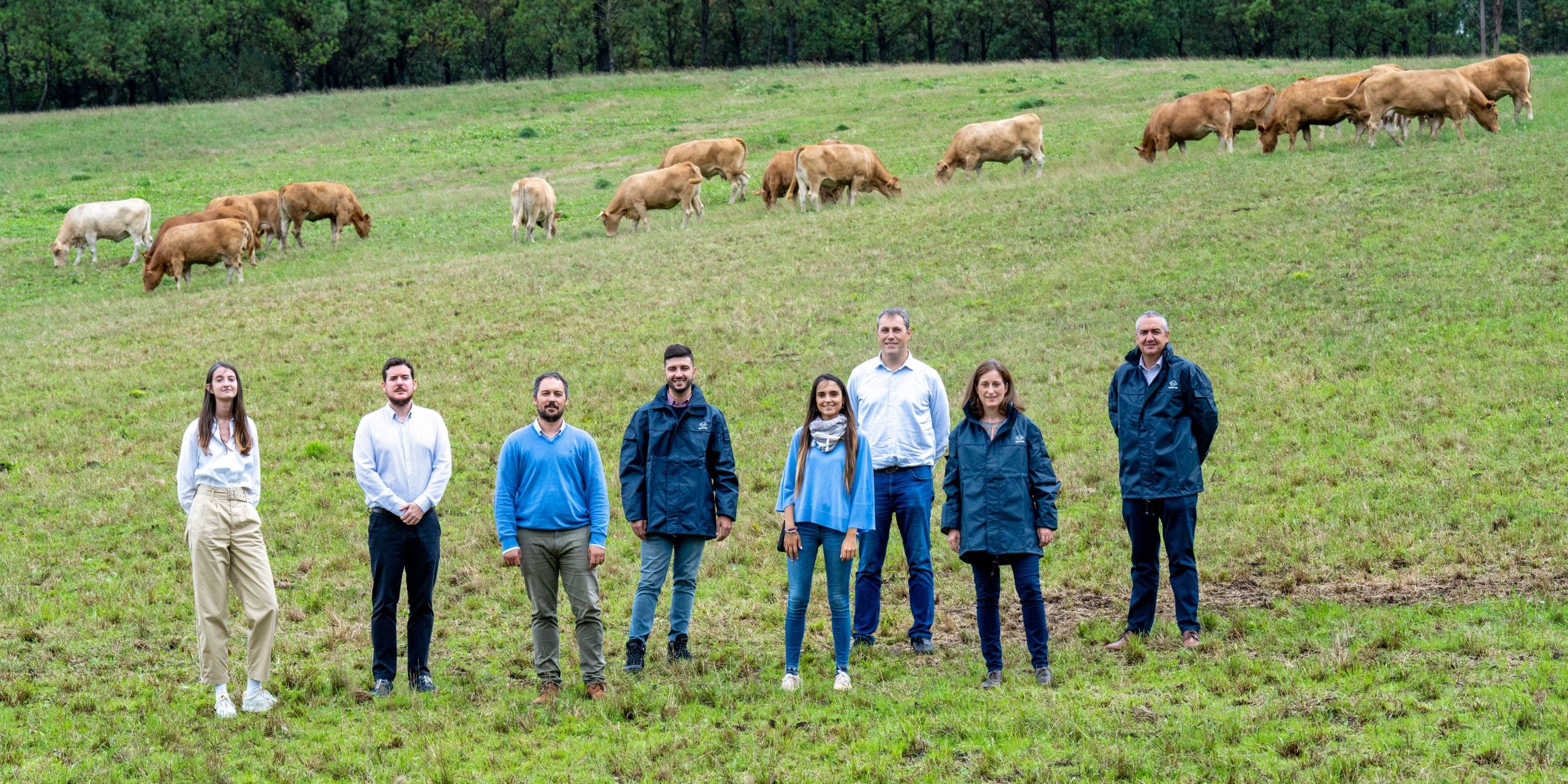Reganosa, Repsol and Naturgy are collaborating with Impulsa Galicia to develop the circular economy with a project that would transform surplus livestock manure and other waste on a large scale into biomethane, organic fertilizers and CO2 neutral of biological origin. This initiative has been designed to optimize slurry management in the autonomous community, reduce energy dependence on the outside, facilitate compliance with new European standards and help decarbonize mobility, industry and households. The promoters are currently carrying out fieldwork and trials that give continuity to months of previous studies and research.
The project consists of progressively deploying throughout the territory a network of plants that value surpluses of bovine, porcine and poultry slurries mixed with a smaller amount of FORS (organic fraction of separate collection) and RIO (organic industrial waste) of the agri-food sector for the production of renewable energy. This is reflected in the memorandum of understanding that Reganosa, Repsol and Naturgy have recently signed with Impulsa, the mixed society promoted by the Xunta de Galicia with the aim of accompanying business initiatives that affect the dynamization, progress and transformation of the Galician economy through a green and digital model.
In an initial phase, the three energy companies plan to build a first anaerobic digestion plant that produces renewable gas and five pre-treatment plants associated with it to dehydrate the surplus bovine slurry. The renewable gas generation plant would be located in Meirama (Cerceda), a fair transition zone, while the five pretreatment plants would be divided, in a first phase, by municipalities in the same province of Coruña and Lugo, according to a distribution based on the Galician map of livestock farms, thus optimizing logistics between both types of facilities.
With an investment of approximately 146 million euros, in this first phase, 1,240,000 tons of surplus slurry would be treated annually and, in addition to organic fertilizers and CO2 neutral, about 300 gigawatts per hour (GWh) of biomethane would be produced and injected into the natural gas network. This renewable gas would be used to decarbonize different sectors, such as transport, residential and industrial, and could be used in the processes of the Repsol refinery in A Coruña.
Extension to all Galicia
Once this initial phase has been completed, the promoters intend to extend the circular economy project in the future to the whole of Galicia, implementing a centralized network for the treatment of surplus livestock manure. This system will ensure the availability to livestock farmers of the slurry necessary to sustainably fertilize their land, as well as the economic viability of their farms. The developers’ calculations show that around 6 million tons of waste could be recovered each year. Rounding off, the biomethane produced (1 TWh per year) would be equivalent to 7% of the natural gas imports that are now demanded in Galicia, with which the community would substantially advance in its energy autonomy and in the consumption of renewables.
The project has been submitted to four ministries of the central Government (Economy, Ecological Transition, Agriculture and Industry) with the aim of fitting it into the Next Generation funds, both for its circularity component and for the fact that it provides a green and indigenous energy source from the surplus of livestock manure.
In this way, the global project would also avoid the emission into the atmosphere of about 500,000 tons of CO2 per year and create quality jobs in the context of the ecological transition and in sparsely populated areas. In short, just over 600 direct and 1,900 indirect jobs, considering both the operation of the plants and transport logistics.
The implementation of this initiative would contribute to compliance with the new European environmental legislation on the protection of agricultural soil and effluent control, as well as sustainable nutrition of agricultural soil, and would address recurrent issues in slurry management and storage.
Innovative for its concept of global integration in the face of dispersion, this project exemplifies at the same time the new model of public-private cooperation and between companies in the same sector, being open to the participation of other companies.
“The parties involved in this project have worked very intensively to provide a solvent technical solution; now we need to create the regulatory framework that allows us to develop and implement the advances,” said Emilio Bruquetas, Reganosa CEO, who calls for policies that encourage “in a clear way” the production of biogas in Spain.
“With this project, strategic for Repsol, we promote the reduction of greenhouse gas emissions from transport and industry, we increase the energy autonomy used renewable gases obtained with local resources and at the same time we promote the circular economy and the sustainability of such an important sector in our country as livestock”, commented Berta Cabello, Director of Renewable Fuels of Repsol.
“This biomethane production project will boost the energy transition in Galicia and promote sustainable waste management, taking a step forward towards the circular economy and local socio-economic development, in addition to contributing to reduce energy dependence from abroad,” explained Jorge Barredo, General Director of Renewables, New Businesses and Innovation of Naturgy.
“This is a very relevant project for Galicia. In its conception and support, the Xunta has advanced twofold: on the one hand, favoring an agile decarbonization of the economy, and on the other, making it easier for livestock farmers to comply with the regulations that will come from Europe. In addition to promoting the circular economy in isolation, this initiative will help generate an ecosystem of solid projects within the Pole for the Transformation of Galicia,” added Enyd López, Impulsa CEO.
Source: Reganosa







